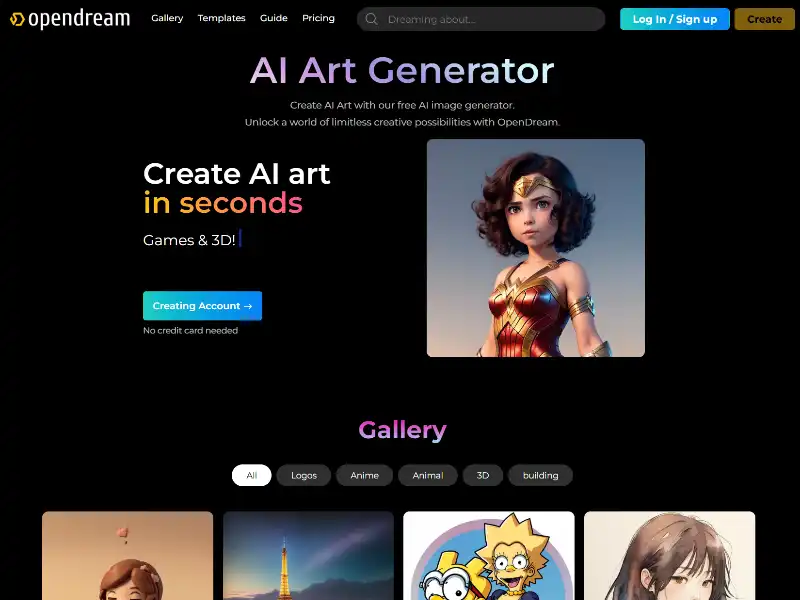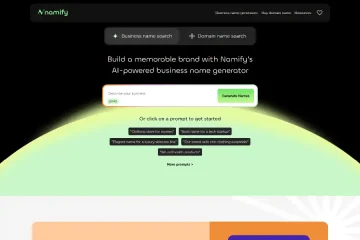
OpenDream: A Comprehensive Tutorial for AI-Assisted Coding
Introduction to OpenDream
OpenDream is an innovative AI-powered development tool designed to streamline coding workflows and enhance programmer productivity. This open-source project provides a robust environment for developers to leverage artificial intelligence in their daily coding tasks, offering features like intelligent code completion, automated debugging, and AI-assisted project structuring.
The platform has gained significant traction among developers due to its seamless integration with popular development environments and its ability to understand complex programming contexts. Unlike many AI coding assistants that focus solely on individual code snippets, OpenDream takes a holistic approach to project development, assisting with everything from file structure organization to comprehensive solution building.
Getting Started with OpenDream
System Requirements
Before diving into OpenDream, ensure your development environment meets these requirements:
- Visual Studio Code (latest version recommended)
- .NET SDK 8.0 or higher
- Minimum 8GB RAM (16GB recommended for larger projects)
- Windows 10/11 or macOS 10.15+
Installation Process
- Install the OpenDream extension from the VSCode marketplace
- Open any folder containing .dme files in VSCode
- Press F5 to initiate debugging mode
- The extension will automatically download required binaries including OpenDream and SS14 Launcher
The setup process is remarkably straightforward, with the system handling most configuration automatically. This eliminates the traditional hurdles of environment setup, allowing developers to focus on actual coding rather than configuration.
Understanding OpenDream’s Project Structure
OpenDream follows a well-organized directory structure that facilitates efficient project management:
textCopy CodeOpenDream/
├── LICENSE
├── README.md
├── global.json
├── nuget.config
├── OpenDream.sln
├── OpenDream/
│ ├── DotSettings
│ ├── (other project files)
├── Content/
│ ├── Tests/
│ │ ├── DMProject/
│ │ │ ├── Tests/
│ │ │ └── ...
│ └── ...
├── bin/
│ ├── Release/
│ └── ...
Key files and directories include:
- LICENSE: Contains the project’s open-source licensing information
- README.md: Comprehensive documentation for setup and usage
- global.json: Configuration for .NET SDK version (set to 8.0.0 by default)
- nuget.config: NuGet package manager settings
- OpenDream.sln: The main solution file containing all project configurations
- Content/Tests/DMProject/Tests/: Directory for DM language test files
- bin/: Contains compiled binaries for different build modes
Core Features of OpenDream
Intelligent Code Generation
OpenDream’s AI engine understands programming context at a deep level, enabling it to:
- Generate complete functions based on comments
- Suggest optimal implementations for algorithms
- Provide alternative solutions with performance comparisons
- Automatically document code as you write
Context-Aware Debugging
The debugging assistant goes beyond traditional breakpoints by:
- Predicting potential runtime errors during coding
- Suggesting fixes for common anti-patterns
- Explaining complex error messages in plain language
- Recommending performance optimizations
Project Scaffolding
OpenDream excels at project organization by:
- Automatically generating appropriate file structures
- Maintaining consistent naming conventions
- Managing dependencies between components
- Creating test stubs alongside implementation code
Advanced Configuration Options
global.json Customization
The global.json file allows developers to specify .NET SDK versions and other global settings:
jsonCopy Code{
"sdk": {
"version": "8.0.0"
}
}
NuGet Configuration
The nuget.config file manages package sources and other NuGet-specific settings. Developers can customize this to include private repositories or specific package versions.
Best Practices for OpenDream Usage
To maximize productivity with OpenDream, consider these professional tips:
- Start with Clear Comments: The AI generates better code when it understands your intent through descriptive comments.
- Leverage Test Generation: Use the automatically created test stubs to maintain high code coverage.
- Review AI Suggestions: While OpenDream’s recommendations are generally excellent, always review generated code for project-specific requirements.
- Customize the Config: Tailor global.json and nuget.config to match your team’s development standards.
- Utilize the Debugging Assistant: Don’t wait for runtime errors – let OpenDream predict and prevent them during development.
Comparing OpenDream to Other AI Coding Tools
While numerous AI coding assistants exist, OpenDream distinguishes itself through:
- Project-Level Understanding: Unlike tools focusing on individual files, OpenDream comprehends entire project structures.
- Open-Source Flexibility: Being open-source allows for deep customization to match specific workflows.
- Integrated Testing: The built-in test generation and management is unparalleled in other tools.
- Lightweight Performance: Despite its powerful features, OpenDream maintains minimal resource usage.
Future Developments and Community
The OpenDream project maintains an active development roadmap, with upcoming features including:
- Enhanced multi-language support
- Cloud-based collaboration tools
- Advanced refactoring capabilities
- Integration with more IDEs beyond VSCode
The open-source community around OpenDream is vibrant and welcoming, with regular contributions improving the tool’s capabilities. Developers are encouraged to participate through:
- Reporting issues and suggesting features
- Contributing code to the main repository
- Creating and sharing custom configurations
- Developing extensions for specialized use cases
Conclusion
OpenDream represents a significant leap forward in AI-assisted development tools. By combining intelligent code generation with comprehensive project management features, it addresses many pain points in modern software development. Whether you’re working on small personal projects or large enterprise applications, OpenDream can dramatically enhance your productivity and code quality.
The tool’s open-source nature ensures it will continue to evolve with the needs of the developer community, making it an excellent long-term investment for any programmer looking to integrate AI into their workflow. With its thoughtful design and powerful capabilities, OpenDream is poised to become an essential tool in every developer’s arsenal.











